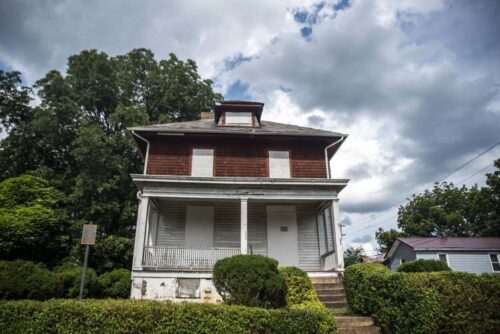
27 Aug Big dreams for Lynchburg home that played a role in desegregating the game of tennis
Lange Johnson has big dreams for his grandfather’s home on Pierce Street — almost as big as the dreams Walter Johnson nurtured there decades ago.
The simple circa-1911 American Foursquare house, with its white clapboard and wood-shingled second facade, sits boarded up, waiting for an infusion of cash to convert this humble house into a museum and tennis camp to honor the late Dr. Robert Walter “Whirlwind” Johnson.
“The last thing we want to do is allow this property to go by the wayside and with it the memories of what took place there.” Lange said. “We cannot do that. We’ve got to preserve it because it’s important to the history of Black America.”
It was Johnson’s mentorship and philanthropy that provided tennis greats Althea Gibson and Arthur Ashe the wherewithal to break the color barrier in the game of tennis and gave countless more the resources to get a college education.
Since the Whirlwind Johnson Foundation was formed in 2015, one important portion of that dream has been realized — the restoration of the tennis court where hundreds of children learned the game and how to excel in a world that wanted to hold them back.
The tennis court, dedicated in 2018, is used by the Lynchburg Parks and Recreation Department for free youth tennis programming. The court restoration was underwritten largely by the U.S. Tennis Association, and Musco Sports Lighting provided money to replace the lighting.



